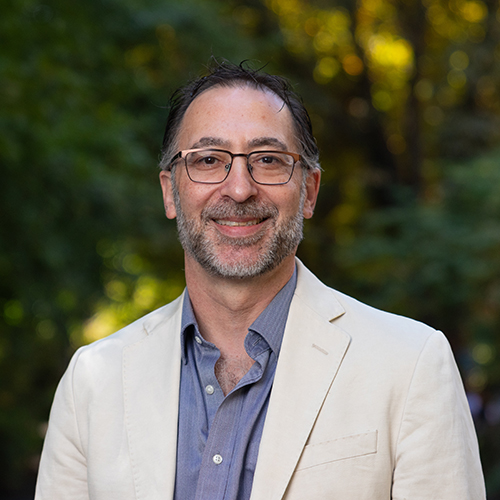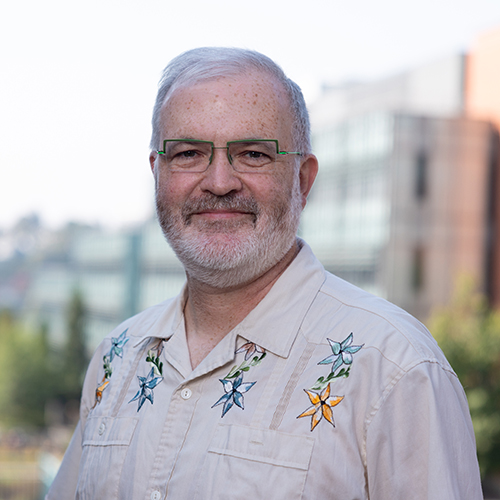Marlo Mack’s son was 3 years old when he told her very adamantly that he was not a boy, but a girl.
Unsure what to do, Mack went in search of answers. She found little information online, her pediatrician knew nothing about transgender children, and even a psychologist who specialized in child identity issues couldn’t answer her questions. Mack quickly learned there was almost no research that could help her determine whether to allow her son to live as a girl, or tell her what might happen if she did.
“It’s like stepping into the abyss,” says Mack, who uses a pseudonym to protect her child’s identity. “There are almost no resources out there.”
A new study by Kristina Olson, assistant professor of psychology, aims to provide insight that could help parents like Mack. The study’s initial results, published in Psychological Science, involved 32 transgender children ages 5 to 12 from around the U.S. who are living as their identified gender in all aspects of their lives and in supportive environments. The paper is intended to launch the first large-scale, nationwide, longitudinal study of transgender children in the United States. Its co-authors with Olson are Nicholas Eaton at Stony Brook University and Aidan Key of Gender Diversity, a Seattle organization that provides training and runs support groups for families of gender-nonconforming children.
The research is part of the broader TransYouth Project, an initiative based out of the UW Department of Psychology’s Social Cognitive Development Lab. The project aims to help scientists, educators, parents, and children better understand the varieties of human gender development. Olson hopes to recruit more than 100 children for the study; families can sign up through the project’s website.
Olson embarked on the project a year ago, partly out of her interest in how children think about social groups, but also because she’d witnessed the challenges of a close friend with a transgender child. “Seeing how little scientific information there was, basically nothing for parents, was hard to watch,” Olson says. “Doctors were saying, ‘We just don’t know,’ so the parents have to make these really big decisions: Should I let my kid go to school as a girl, or should I make my kid go to school as a boy? Should he be in therapy to try to change what he says he is, or should he be supported?”
Olson’s study sought to determine how deeply held a participant’s gender identity was, or whether transgender children were, as others have suggested, confused or simply pretending to be the opposite gender. The research combined the children’s own self-reporting about gender with tests that assessed the speed at which they associated with various concepts of male and female. The study found that participants’ responses were indistinguishable from those of two control groups, suggesting that “this identity is a deeply held one.”
The findings are likely to be controversial. The notion that prepubescent children can be legitimately transgender has been met with skepticism in the public realm. And some experts believe the best approach for gender-variant children is not to allow them to live as the “opposite” gender, but to instead try to help them be comfortable with their biological gender. But growing numbers of doctors, parents and mental health professionals are advocating that children be permitted to live as their identified gender. The attitude shift is motivated at least in part by the often tragic outcomes for transgender people. Forty-one percent of transgender people attempt suicide, compared with 1.6 percent among the general population, and transgender adults face staggeringly high rates of unemployment, poverty, discrimination and homelessness.
Key, who helped to develop questions and assisted with recruitment for Olson’s study, said he’s met parents whose transgender children, as young as 5 years old, have significant anxiety and depression, even suicidal impulses. “Families are searching for information,” he says. “Nobody wants a child to say, ‘I wish I were dead’ when they’re 6 years old.”
Key says previous research and treatment have been hampered by a fear that allowing children to transition to their expressed gender will track them into becoming transgender adults. Rather than forcing children to live as their assigned gender, Key says, allowing simple measures such as using a different name or altering their hair makes them feel validated and supported.“Then if that child were to change their mind, they would just change back,” he says.
Key expects Olson’s research will affirm what parents he works with have discovered—that embracing their children’s identities leads to happier, healthier young adults. “The evidence is there in the lives of their children,” he says. “The research is struggling to catch up. That’s why Kristina’s work is so powerful.”
Olson hopes to follow the children in her initial study into adulthood to observe how the support they have received influences their development and whether it translates into more positive outcomes than in today’s transgender adults. “We have absolutely no idea what their lives will look like, because there are very few transgender adults today who lived as young kids expressing their gender identity,” Olson says. “That’s all the more reason why this particular generation is important to study. They’re the pioneers.”
Mack started a podcast, How to Be a Girl, and a blog to chronicle her experiences with her daughter and share information with other parents. She hopes Olson’s work will ultimately help parents like her determine how likely their children are to remain fixed in their gender identities.
“That’s the 64-million-dollar question,” she says. “That’s what everybody wants to know.”
Adapted from a January 29, 2015 story for UW Today.
More Stories

Coast Salish Traditions are "Woven in Wool" at the Burke
A Burke Museum exhibit, co-curated by Coast Salish weavers and Burke curators, highlights the importance of weaving to Coast Salish communities.

The Curious Journey of Chinese Characters
Several Asian countries adapted the Chinese writing system—the oldest writing system still in use—for their own languages. In a new book, Professor Zev Handel shares how that happened.

Demystifying Quantum
In a physics course for non-STEM majors, Professor Miguel Morales teaches quantum mechanics without the advanced mathematics most quantum courses require.